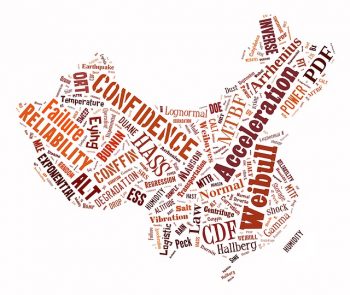China’s Stereotypical Distinction between North and South Posted by Ayana on Jul 1, 2019 in Uncategorized
Whenever Yu Juan, my Yunnanise friend, recalls her time in Beijing she’s pouting. She graduated from a famous university, but didn’t enjoy her stay in the capital city. “The food there is not spicy enough, and the people are so different”, she explains. “Different?”, I ask, and she elaborates:
– 北方人脾气凶暴 (běi fāng rén pí qì xiōng bào, people from the north have a violent temper)
– 南方人呢? (nán fāng rén ne?, and people from the south?)
– 南方人性格细腻 (nán fāng rén xìng gé xìnì, people from the south have delicate character).
Yu Juan is not the only one to say these kind of things. The Chinese society is full of stereotypes (刻板印象 kè bǎn yìn xiàng) about people who come from different parts of the country. Different characteristics are attributed to Chinese from different provinces and different cities. But the most basic distinction is between those born north of the Yangtze River (长江 cháng jiāng) and those born to the south. Chinese believe people from the north and people from the south differ by more than height, language, and cuisine.
The personal differences (区别 qū bié) between north and south have even been demonstrated in several scientific studies in recent years. A study titled Moving chairs in Starbucks: Observational studies find rice-wheat cultural differences in daily life in China (2018), by Chicago Booth Behavioral Scientist Thomas Talhelm, for example, observed 8,964 people sitting in Starbucks cafes in six different cities (城市 chéng shì).
The study found that people from southern China cities, like Shanghai and Hong Kong, were less likely to be sitting alone. The researchers also moved chairs together so that they were partially blocking the way. They found that people in northern China cities, like Beijing and Shenyang, were more likely to move the chairs out of the way, whereas people in southern China were more likely to squeeze through the chairs. The study reports that people from the south showed interdependent behaviors, like sitting in groups or squeezing themselves through narrowly placed chairs. Whereas people from the north often displayed individualistic behaviors, like sitting alone or actively moving chairs that blocked their way.
The study suggests the reason for such differences lies in the traditional agriculture of the different regions of China. The different crops (庄稼 zhuāng jià) grown by the Chinese for generations on the opposite sides of the Yangtze river, are affected by the different climate: rice (大米 dà mǐ) in the south, wheat (小麦 xiǎo mài) in the north. Rice is grown on irrigated land, and requires a canal and dike system between the fields. Rice farmers must work together to develop and maintain such an infrastructure. Wheat is grown on dry land, relying on rain for moisture, enabling the farmers to be more independent. The study claims that the traditional interdependent rice-farming culture of southern China has resulted in today’s residents being more interdependent. It’s easier for them to adjust themselves to the environment (环境 huán jìng). Their countrymen from the north, on the other hand, are more likely to try to exert control over the environment.
Some oppose the various studies of Talhelm on the psychological differences between south and north populations (人口 rén kǒu) in China. But, he is not the only one to attribute Chinese modern personal traits to the traditional rice farming. Malcolm Gladwell devotes a whole chapter in his book Outliers: The Story of Success (2011) to the connection between rice paddies (稻田 dào tián) and math tests. According to Gladwell, success has less to do with nature and more to do with nurture. He believes that many factors lead human beings to success, one of them is legacy. In his book, he describes the hard work of rice farmers, and claims their diligence and persistence is ingrained into Chinese culture (文化 wén huà) due to this hard work on the paddies. In his opinion, the agricultural heritage of Chinese (and other Asians) give them advantages over western cultures in math.
The differences between south and north also play a role in the Chinese economy. In the shared bicycles business, for example. China’s two bike rental companies are founded by two ambitious young Chinese from the different sides of the river: Dai Wei from Jiangsu province (省 shěng) is the founder of Ofo, launched in Beijing; Hu Weiwei from Zhejiang province is the founder of Mobike, launched in Shanghai. Grace Gu, principal at ZhenFund investment fund, said at the 2017 ChinaBang Awards, that Ofo has showed a very typical northern China style (方式 fāng shì) of expansion while Mobike has displayed the southern China style of expansion. According to her, southern style is more detailed in planning and building the business model before execution, while the northern style is first to expand wide to win the market share, and then slowly optimize their service.
The next time you meet with some Chinese friends, consider bringing this subject up. It can lead to an interesting discussion. Please feel free to share your thoughts in the comments below.
Text vocabulary
北方人 běi fāng rén = people from the north
南方人 nán fāng rén = people from the south
刻板印象 kè bǎn yìn xiàng = stereotype
长江 cháng jiāng = Yangtze river
区别 qū bié = difference
城市 chéng shì = city
庄稼 zhuāng jià = crop
大米 dà mǐ = rice (grain, not cooked)
小麦 xiǎo mài = wheat
环境 huán jìng = environment
人口 rén kǒu = population
稻田 dào tián = rice paddy, rice field
文化 wén huà = culture
省 shěng = province
方式 fāng shì = style, way
好好学习,天天向上!

Build vocabulary, practice pronunciation, and more with Transparent Language Online. Available anytime, anywhere, on any device.






Leave a comment: